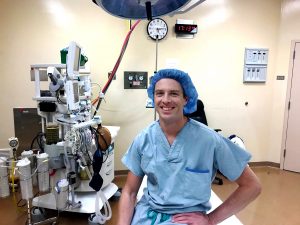 General Surgeons of BC is a political and economic organization that advocates for general surgeons in British Columbia. We do not provide medical advice and will not respond to such requests.
General Surgeons of BC is a political and economic organization that advocates for general surgeons in British Columbia. We do not provide medical advice and will not respond to such requests.
What is a General Surgeon?
A General Surgeon is a Surgical Specialist.
General surgeons perform many types of operations that include gastrointestinal tract (stomach, intestine, colon, rectum, and anus), liver, pancreas, endocrine system, hernias, organ transplants, cancer removal, breast disease, head and neck, vascular, skin, and arms, legs, hands and feet.
General surgeons are specially trained to provide surgical care for the patient as a whole, and as a result, they diagnose, and manage the pre-operative, operative, and post-operative care of patients.
Where do General Surgeons work?
General surgery is a varied speciality involving time inside the hospital and outside of it. Much of a general surgeon’s time is spent in the hospital operating room, emergency department, and intensive care unit, as well as, in their office and in British Columbia’s medical schools where they teach medical students and aspiring surgeons. Most general surgeons work with other health care providers such as family doctors, nurses, physiotherapists, and pharmacists on a regular basis to ensure the best care for patients.
When is a General Surgeon needed?
Emergency Surgery – People can end up in the Emergency Department and need a general surgeon for any number of reasons including removing a ruptured appendix or gallbladder, surgical treatment of a severe infection, or repairing a blocked colon.
Cancer Surgery – Six of the ten most common types of cancer are surgically treated by general surgeons. This includes breast and colorectal cancers. Some more complex cancers that also require the expertise of a general surgeon are liver, pancreas, stomach and sarcoma (soft tissue).
Trauma Care – General surgeons take the lead for all trauma patients requiring surgery as a result of a car crash, work accident, gunshot and stab wounds.
What is the training of a General Surgeon?
In British Columbia, after a minimum of three years of a university undergraduate education followed by four years of medical school, doctors attain their medical degree. After this, they can specialize. To become a general surgeons, this means an additional five year residency training program in the field of General Surgery. Since medical knowledge and technology changes quickly, general surgeons continue their learning even after they have completed residency.
General surgeons are also on the cutting edge of change. Many are involved in research and collaborate with other doctors such as to improve health outcomes of cancer surgery patients. Other general surgeons work with Canada’s organ transplant programs to develop new techniques. Others use cameras and advanced techniques in Minimally Invasive Surgery that rely on small openings to perform surgery that once required much larger openings.
Dr Mark Dickeson
Past President, General Surgeons of BC
